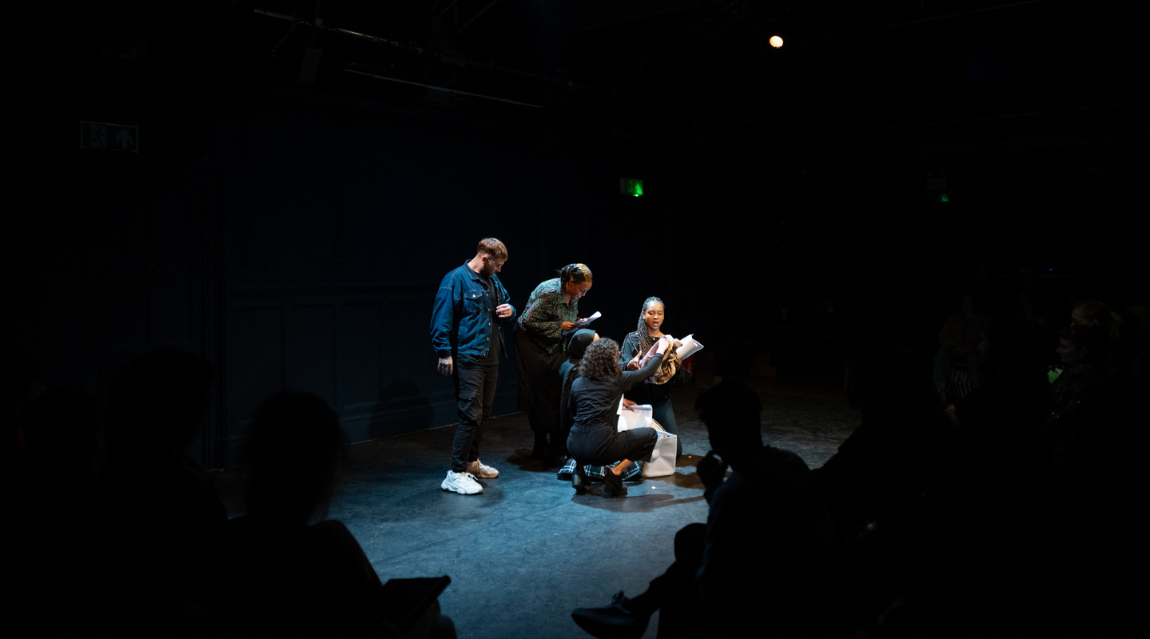Posted: 13 June 2023
Newly appointed Regional Associates to lead on ground-breaking national programme to diversify dramaturgy

Tamasha has launched a three-year programme in partnership with regional organisations around the UK, building on the legacy of its Developing Artists programmes.
The programme aims to recalibrate approaches to supporting new writing and rebalance a Eurocentric approach to dramaturgy. We will work with producing venues to deliver artist development initiatives and engagement programmes responding to the specific needs of their local artists and communities.
Funded by Paul Hamlyn Foundation, the programme will enhance regional commissioning, provide targeted support for writers, explore how creative engagement can transform communities, and look at how structures can develop to better support the needs of Global Majority writers and audiences.
A brand-new Tamasha Regional Associate role will be shared by Director Gitika Buttoo and Director/Dramaturg Beth Kapila, who will lead on devising and delivering the programme with Tamasha’s regional partners.
Pooja Ghai, Artistic Director, Tamasha: “At a time of seismic challenges across the sector, this new initiative aims to redress systemic injustices in access to development and producing opportunities. Decolonising our approach to dramaturgy for our Global Majority writers is both long overdue and necessary. By embracing the multiple forms of storytelling from around the world we will empower Global Majority artists to play a dynamic, leading role in the recovery of our national arts ecology. We are thrilled to welcome Gitika and Beth to play such an important role on this journey and look forward to everything they – along with our regional partners, writers and communities – achieve.”
Sonia Mehta, Grants Manager, Paul Hamlyn Foundation: “We are delighted to help Tamasha to build on their outstanding work to support Global Majority playwrights, theatre-makers and dramaturgs. Partnering with regional organisations across the UK, this new programme will empower artists to tell stories on their own terms, and promises to interrogate and reset the structures in place that shape how theatre is made and programmed and by whom – making for a richer and more inclusive sector. We look forward to taking this journey together.”

Gitika Buttoo is a Queer British South Asian Director from Yorkshire, currently based in Manchester. She directs theatre and radio nationally and has just finished her tenure as Staff Director at The National Theatre. She has been the full time Artistic Associate of Birmingham Opera Company and is currently the Associate Director of LUNG Theatre Company.
Gitika said: “I am excited to work with Tamasha in this new chapter of its journey. I am looking forward meeting multiple venues and companies regionally to create a strategy to discover, create and maintain relationships with global majority artists across the UK. As an artist from and working in the North – telling stories that focus on global majority and Northern voices – I am passionate about taking on this role to pull together excellence and create a genuinely national powerhouse.”

Beth Kapila is a freelance director and dramaturg originally from Peterborough, living between Birmingham and London for the last 10 years. Recently Beth was Artistic Associate at Tara Theatre in Southwest London. She trained on the StoneCrabs Young Directors Scheme and the Birmingham REP Foundry artist development scheme, forming her ideas of what theatre is and who we really make it for. She is currently studying an MA in Cities, to explore collaborative and creative practices in place making.
Beth said: I’m thrilled by the potential of this role to connect strands of the work I’ve been doing and put me in a position to move it forward with Tamasha. It is important to me to be involved in the conversation about decolonising dramaturgy – what that means, what it looks like, and how we can embed it into our practice as an industry. I’m looking forward to being part of a movement of people working hard to affect change in our diverse cities and regions and embedding the programme into their unique ecologies.